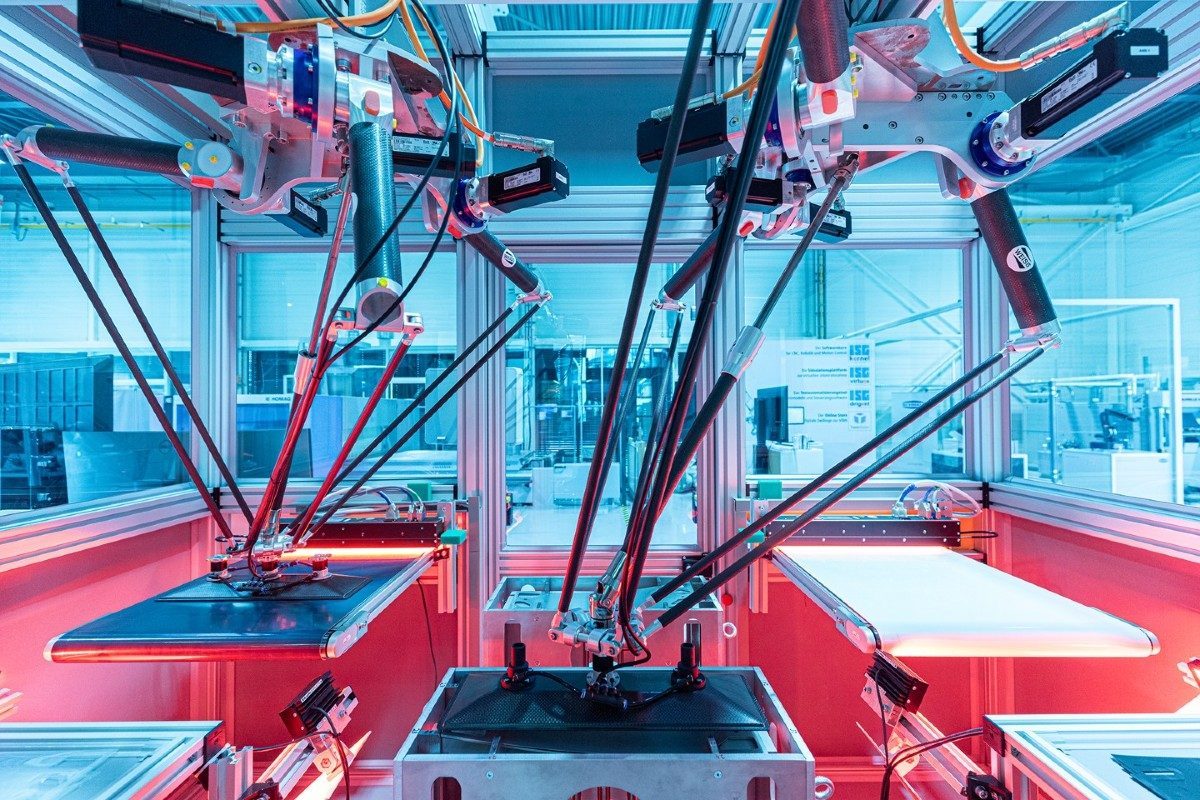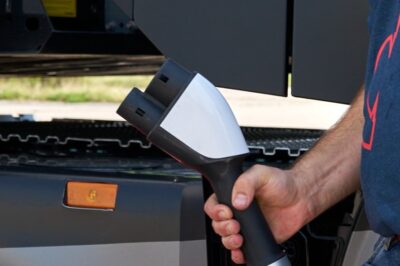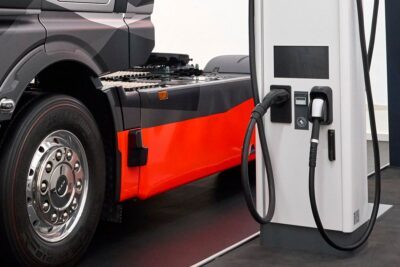Robot duo produces fuel cell stacks in 13 minutes
The scientists describe the automation of the manufacturing process as an essential prerequisite for the prices of fuel cell systems to fall. “If fuel cells are to replace combustion engines in heavy-duty transport, they must be mass-produced on an industrial scale, largely automated and correspondingly cost-effective,” emphasises Erwin Groß from the Corporate Strategy and Development department at the Fraunhofer Institute for Manufacturing Engineering and Automation IPA.
The research team from Fraunhofer IPA and the Black Forest Centre for Digitalisation, Leadership and Sustainability (Campus Schwarzwald) is now presenting an automation solution for the H2FastCell project. Every second, the robot duo created by the project participants places a bipolar plate or membrane electrode unit on the fuel cell stack. “A stack consisting of 400 individual fuel cells is therefore ready in around 13 minutes. Manual production would take many times longer,” reads an accompanying press release.
The Fraunhofer Institute describes precision as another important criterion for industrial mass production. Any deviation – even in the micrometre range – could reduce the performance of the fuel cell system. That is why the two robots stack two fuel cell stacks in parallel. If their cameras register tiny deviations in shape and size during quality control, they assign the bipolar plate or membrane electrode unit to the appropriate stack. “With this best-fit approach, we are reducing the rejects that manufacturers have been complaining about up to now,” says Friedrich-Wilhelm Speckmann from the Centre for Digitised Battery Cell Production at Fraunhofer IPA, who led the research project together with Erwin Groß.
In addition to the scientists, five companies from Baden-Württemberg collaborated on the H2FastCell project: software developer ISG Industrielle Steuerungstechnik GmbH, vacuum technology manufacturer J. Schmalz GmbH, sensor producer i-mation GmbH, machine and plant manufacturer teamtechnik Maschinen und Anlagen GmbH, and automation technology company Weiss GmbH. The Baden-Wuerttemberg Ministry of Economic Affairs, Labour and Tourism funded the project with around 2.3 million euros.
The completed robot cell is located on a test field at the Campus Schwarzwald in Freudenstadt and will be used as a test bench for small and medium-sized companies, in particular, to test their products now that the project has ended. “We have thus laid the foundation stone for our future research centre for a bio-intelligent hydrogen circular economy in the Black Forest,” says Stefan Bogenrieder, Managing Director of Campus Schwarzwald. “We want to work with companies in Baden-Wuerttemberg to harness hydrogen technology for mobile and stationary use as an energy source.”
ipa.fraunhofer.de (in German)





0 Comments